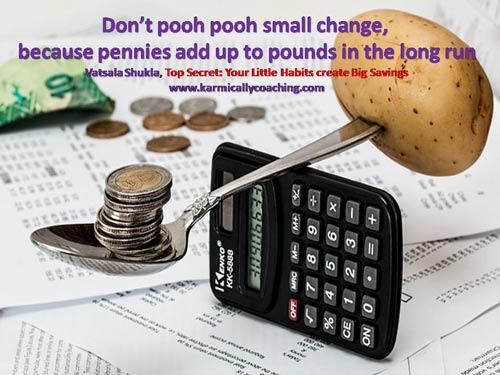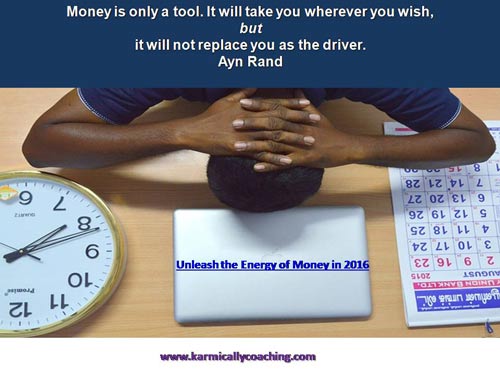
Last week we looked at 3 big ticket items where habit modification and action results in big savings, more money in your pocket and stops unnecessary outflow of money. All while maintaining your lifestyle.
In the concluding part of the Money Management series, we’ll look at 3 more practical areas where the pennies add up to pounds in the long run.
Learn the Art of Car Maintenance
There’s no Zen theory here but a stitch in time saves nine. If you own a car, then maintaining a regular servicing of the vehicle by an authorized vehicle service provider can identify immediately remediable wear and tear on your car. This results in significant savings because regular oil and filter changes, wheel rotation, checking and replacement of brake pads keeps the car in good condition.
Combine recommended mileage checks with your weekly and monthly self inspection for battery, water and tyre pressure. Check your vehicle’s maintenance manual and see what other self inspections are required on a seasonal basis.
Annual Maintenance of Home Appliances
Make a list of all annual maintenance items for your home such as air conditioner, heater, hot water heater, etc. Once again, being prepared and working in a proactive manner can save you unnecessary expenses.
For example, if you get your air conditioners annual service done during Spring, then you lower the risk of something going wrong during the hot summer months. That’s when it is quite costly to repair as the demand for maintenance is higher.
Likewise for room heaters in the cold winter months. Find out if the dealer from whom you purchase home essential items offer an Annual Maintenance Contract or AMC and the warranty periods with extensions.
Consider Repairing instead of Replacing Items
There are of course items which are not covered by AMCs and in this case, the prudent consideration and question is to repair or replace the said item. A good example is furniture and fixtures. If the basic structure is in good condition, then perhaps a change of upholstery or refurbishment may be more cost effective.
Even with televisions, washing machines and air conditioners which are no longer working at full efficiency, consider the cost of repair against the cost of replacing the item.
Sometimes it makes economic sense to replace electrical items as advances in technology result in more efficient products both in terms of electricity consumption and pollution. Look out for festive and exchange offers where the old equipment can be exchanged for a discount in the price of the new equipment.
Do comparison shopping for expensive items to get a feel of the prices. Dealers often make concessions on their margins, and you might yet get a bargain. The effort is worth it. No one likes to think that if they had shopped around a little more, they could have purchased an item for 10-15% less money.
There are many other ways to save money without compromising on one’s lifestyle. What works for one person may not necessarily work for another so choose actions that fit in with your circumstances. Choose those that are best suited to you.
4 Ways to Keep your Money Management Motivation in Top Gear
In addition to the 10 tips shared over the last 3 weeks, there are some non-monetary suggestions to help you stay inspired and motivated. Try one or all as the case may be.
Identify your spending triggers
Just like some of us indulge in comfort eating when depressed, sad, lonely, stressed, or anxious, these feelings can also act as a trigger for unnecessary spending, to get a ‘feel good’ boost.
For example, when you are bored, you go to the shops or the mall. Although you might have some necessary expenditure you end up buying non-essentials out of the ‘need’ to spend money.
In such cases, it helps to ascertain the actual problem and work on factors that you can control.
Retail therapy in small doses is good but not when it burns a hole in your pocket. Consider leaving your credit and debit cards at home on such outings. Or stepping back before making a purchase and ask yourself if you really need the item in question.
If you are prone to excessive spending when experiencing stress, this post on stress triggers will be helpful – Case Study: Do You Know Your Stress Triggers?
Be kind to yourself – give yourself a treat
Here we are talking of avoiding going into a complete abstention mode. Giving up the things that you like will not help your cause unless you have super strong willpower. The more you avoid something, the more it will obsess you.
For example, if you are fond of dining at a particular restaurant, treat yourself to a meal there once a month instead of once a week.
There is a way to make sure that you have the money for monthly treats for yourself. I’ve shared the method in Money Success Secret: The Alchemy of Mindset and Management available in all Amazon Markets.
I also have a free resource for you – the replay of my teleclass – 3 important actions you need to manage your money. Click here for the details of the teleclass or on the image below and access it asap!
Live within your means
There is a saying in Hindi that one should only stretch ones legs as far as one’s bed sheet. In other words, live within your means. The best way to get into debt and financial crisis is to spend beyond your means.
We all want the best things in life, but happiness cannot be measured in monetary terms. Be grateful for what you have and accept your financial position. Use the tips provided to achieve more for your money but don’t go after things that you cannot afford. If the purchase requires time, then plan the expenditure.
Quite a few of the readers of the previous post shared their experiences and confirmed that one of their money management tools was to live within their means. So you see, it can be done!
Track your success for motivation
It always helps to see your success in saving money in writing. Keeping a money journal is a sure way to keep you on track while heading to the highway of success. Success can be in the form of small amounts or big ones. It could include deferring expenditure until the after Christmas sale and acquiring the same item at a lower price. Remember, success is success.

At the end of the day, learn to enjoy life rather than possessions. Being happy is any day better than spending money on things that you might not actually need or to maintain a pseudo lifestyle.
If something is really important to maintain your lifestyle, then work on making the money available through a Money Spending Plan. Avoid stressing out just because you don’t have it.
Your turn! Are there any small ticket areas where you’ve created savings for bigger and more important needs? Tell me about it in the comments box below.




 I adhere to the Certified Coaches Alliance Code of Ethics and Standards. A copy is available on request.
I adhere to the Certified Coaches Alliance Code of Ethics and Standards. A copy is available on request.
 Let's Talk through the Connect Form:
Let's Talk through the Connect Form: